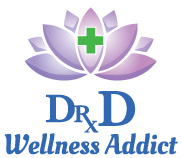“I don’t eat red meat, but sometimes a woman needs a steak.“
-Dr. D
Meat lovers, don’t worry, a plant-based diet does not have to mean no meat! That being said, the scientific data is clear. Regardless of your ethical stance, meat can be toxic to the human body. Keep reading to learn why, and more importantly, how to incorporate meat safely into your diet, if desired.
Study after study has shown diets high in animal protein, especially red meat, increase the risk for cardiovascular disease, cancer, and death. This is especially true when combined with other characteristics of a Standard American Diet (SAD) and lifestyle, such as excess sugar, processed and refined foods, insufficient or absent intake of nutrient dense plants, and inactivity,
Processed meat is especially bad, as multiple studies have linked foods such as hot dogs, sausage, ham, and bacon to death from any cause, including heart disease and cancers such as colorectal, pancreatic, and prostate cancer. To quote Dr. David Sinclair, author of Lifespan, “These foods may be gloriously delicious… but they are ingloriously carcinogenic.”
Red meat contains carnitine, which is converted by gut bacteria to TMAO, a chemical suspected of causing heart disease. Carnitine is present in all red meat regardless of its quality, which is why it’s important to limit red meat specifically.
It’s no wonder that substituting animal protein with plant protein has been shown to reduce death by any cause. Now that you know health and longevity are best obtained with a diet low in animal protein, I remind you that you don’t have to give it up – not even red meat!
The key is to eat primarily plants rich in fiber and nutrients, with a bit of animal protein (if desired). Dr. Mark Hyman, one of my favorite functional medicine physicians, encourages us to think of meat like a condiment – a condimeat. And if a splurge on a 16 oz steak is warranted, enjoy it – then go all plants for a few days.
When it comes to quality, grass-fed red meat and pasture-raised white meat, including its products like milk and eggs, are the labels to look for when shopping. They mean the animals were raised in their natural habitat and fed their natural diet.
Why should you care about the quality of your meat? If I fed your child toxic food, kept them crowded with other kids in darkness left to live in their own excrements, and pumped them full of pharmaceuticals like antacids, antibiotics and hormones – three of the seven deadly disruptors – do you think your child would be healthy? Animals raised this way for mass production aren’t healthy either, which negatively impacts your body when you eat it.
I’ll end by sharing my way of eating. I eat primarily plants but enjoy all kinds of animal protein of the healthiest quality. Although Whole Foods has done a good job of offering high quality animal products, I find a better selection at more affordable rates shopping at a Farmer’s Market – another reason to eat locally. I like to have days where I essentially eat vegan, or no animal products. I also have days when every meal contains about 25% of animal protein. I even eat red meat about once or twice a month, timing it to my cycle for iron supplementation.
Stay tuned for tons of delicious recipes and tips to help you incorporate meat into your plant-based diet, including healthy versions of traditional classics like burgers, pizza, bacon, and more. Check out one of my staples, “Fancy Bacon!”
